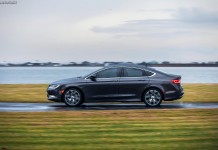China’s Beijing Automotive Industry Holding (BAIC) said intellectual property rights concerns were to blame for its failure to reach agreement with General Motors on the sale of the US firm’s Opel unit.
General Motors said Thursday that it was no longer in talks with BAIC on the sale of its European unit Opel, based in Germany, leaving just Canadian auto parts maker Magna and Belgium-based RHJ International in the race.
“We had kept communications with the US General Motors in the negotiations on intellectual property rights issues… Regrettably, both parties failed to reach agreement on this issue,” BAIC said in a statement.
“We understand and respect GM’s choice,” it said.
BAIC did not elaborate on the exact nature of the property rights concerns, except to say that it had planned to combine its knowledge about the Chinese market and Opel’s strength in research and development.
“(We) would maintain GM’s stake in Opel to the largest extent, ensure Opel’s market share in Europe and support Opel’s expansion into the Chinese market,” it said.
A spokesman for German Chancellor Angela Merkel has said Berlin hopes to thrash out an agreement with GM in the next few weeks.
Berlin favours the Magna bid, as do regional German governments involved in the talks and powerful unions.
While the final decision lies with GM, the German government is set to stump up billions of euros (dollars) in loan guarantees to sweeten any takeover deal in a bid to save tens of thousands of jobs.
BAIC had offered 660 million euros for a 51 percent stake and wanted considerably less than rival bidders — 2.6 billion euros — in German government guarantees.
However, it was always seen as the least favoured bidder.
Analysts have doubted BAIC’s ability to take over and run a global brand, citing the failure by China’s largest carmaker, SAIC Motor, to handle South Korea’s Ssangyong Motor, in which SAIC had taken a 51.3 percent stake.
Ssangyong filed for bankruptcy protection in January.






